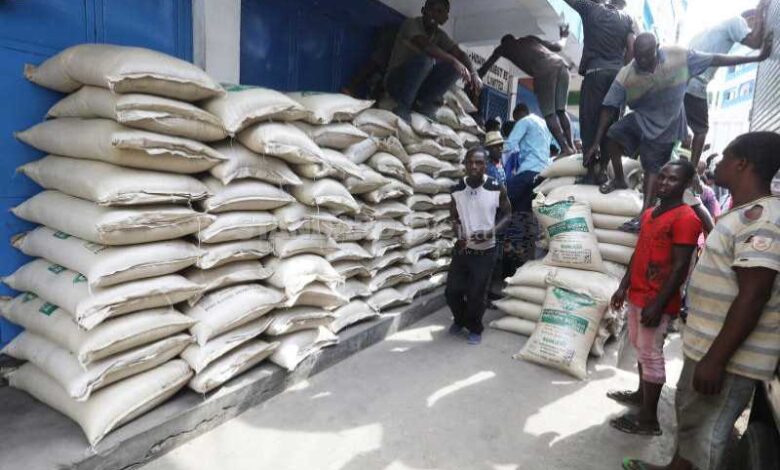FABAG Warns Ghana Losing Over GH₵300 Million Monthly to Sugar and Rice Smuggling

Ghana is losing more than GH₵300 million every month to the smuggling of sugar and rice alone, the Food and Beverages Association of Ghana (FABAG) has cautioned, describing the situation as a growing national economic threat.
According to FABAG President, Mr. John Awuni, new trade data indicates a surge in smuggled imports entering the country through neighbouring Togo. He noted that while Ghana officially imports about 660 containers of sugar per month, an estimated 2,200 containers are now entering the Ghanaian market through Togo every month. This marks a major jump from previous years when about 2,000 containers came through Togo annually.
Mr. Awuni said the scale of the smuggling has expanded beyond sugar and rice, affecting products such as cooking oil, textiles and alcoholic beverages. He warned that the illegal trade is costing the country hundreds of millions of cedis weekly, undermining government revenue mobilisation and weakening legitimate local manufacturers.
“This is a double tragedy. Compliant businesses are being punished with high taxes and high cost of doing business, while smugglers are operating freely and bringing in untaxed and often inferior goods,” he stated.
FABAG noted that the current situation threatens job security in the manufacturing and distribution sectors and risks eroding investor confidence in Ghana’s business environment.
The smuggling crisis mirrors challenges facing the cocoa industry, where an estimated 160,000 tonnes of cocoa worth about £1.28 billion was smuggled out of Ghana to Côte d’Ivoire and Togo in the 2023 to 2024 season. The Cocoa Board responded by establishing an anti-smuggling task force, working with the military to make arrests and intercept smuggled beans.
Government and international development partners have also attempted to strengthen border controls. The EU-funded Strengthening Border Security in Ghana project, implemented with the Ghana Immigration Service, worked to enhance monitoring systems and improve security procedures.
FABAG is urging the Customs Division of the Ghana Revenue Authority and the Ministry of Trade and Industry to intensify enforcement operations at border points. The association is also calling for the deployment of advanced surveillance technology and deeper engagement with border communities to discourage smuggling networks.
With the Ministry of Finance preparing the 2026 budget, FABAG is appealing for a comprehensive review of import duties and port charges. It argues that high import taxes and cumbersome clearance procedures are contributing to the surge in smuggling by creating incentives to bypass formal systems.
“The issue is not only economic. It is a matter of national security and survival,” FABAG stated, calling for swift reforms to protect the country’s revenue base, safeguard jobs and ensure fair competition for local industries.




